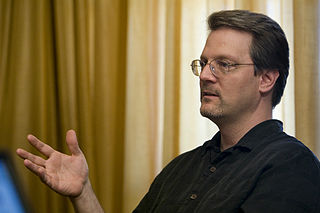A Quote by Anna Lappe
The food industry is spending almost $2 billion a year marketing directly to children and teens. We know that those ads lead to children demanding certain brands, and we know that food and drink marketing gets all of us to consume more calories. If we're going to address diet-related illnesses, talking about marketing to kids is a key step. There should be places like schools that are protected sanctuaries from commercialization and from advertising, especially when it comes to kids' health.
Quote Topics
About
Address
Ads
Advertising
Almost
Billion
Brands
Calories
Certain
Children
Commercialization
Consume
Demanding
Diet
Directly
Drink
Food
Food And Drink
Food Industry
Gets
Going
Health
Illnesses
Industry
Key
Kids
Know
Lead
Like
Marketing
More
Places
Protected
Related
Schools
Should
Spending
Step
Talking
Teens
Those
Us
Year
Related Quotes
When people hear about legal restrictions on marketing and advertising, often the response is: Aren't you just being a food nanny? Isn't that government playing too much of a role in our lives? When people have that response, they're forgetting the extent to which what kids are eating and drinking is having as much of an impact on their lives as, say, if they were starting to smoke cigarettes as teenagers. Diet-related illnesses are causing nearly as many deaths as tobacco-related illnesses.
The sheer novelty and glamor of the Western diet, with its seventeen thousand new food products every year and the marketing power - thirty-two billion dollars a year - used to sell us those products, has overwhelmed the force of tradition and left us where we now find ourselves: relying on science and journalism and government and marketing to help us decide what to eat.
I found marketing to be highly descriptive and prescriptive, without much of a foundation in deep research. I brought in economics, organization theory, mathematics, and social psychology in my first edition of Marketing Management in 1967. Today Marketing Management is in its 15th edition and remains the world's leading textbook on marketing in MBA programs. Subsequently, I wrote two more textbooks, Principles of Marketing and Marketing: an Introduction.
Arthur Hughes is one of the pioneers of modern database marketing. His new book, Strategic Database Marketing, Third Edition, contains the wisdom of twenty years of database marketing experience from scores of companies throughout the US. I can heartily endorse Arthur's book for anyone who wants to know the state of the art in database marketing today.
If you could distill this down to a single principle its that the best marketers in the world know MARKETS first and foremost, and secondly they're students of MARKETING. It's more important to know a MARKET than to know MARKETING, and I teach people MARKETING! And so, as far as this seminar is concerned, it's all about knowing a market, and it's so thorough that even if you don't have personal experience in that market you can still go into it and find out, what are the things that people will pay money for!


































